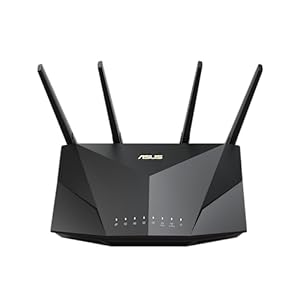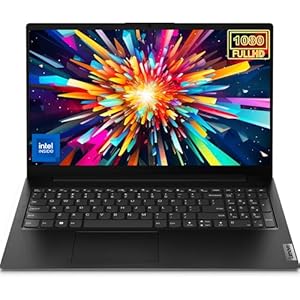The everlasting paradox with passwords is that whereas we’re continually being pushed to create unique and sophisticated passwords for each app we use and each web site we go to, these passwords turn into ineffective after we cannot bear in mind them. Sure, a login like “311t10@gobxylo” is perhaps troublesome to crack and unattainable to guess, however I would by no means be capable to memorize that properly sufficient to keep away from triggering a password reset finally. Some kind of password locker is necessary for me, and doubtless for you as properly.
Due to this, it is now de facto for main net browsers like Chrome and Firefox to supply to avoid wasting your passwords in a free locker synced to your account. It is extraordinarily handy, and also you’re most likely benefiting from it proper now. There are some safety points you need to be conscious of, nonetheless, which can immediate just a few of you to change to a paid locker as a substitute. Everybody else ought to be nice so long as they take sure primary precautions, which I will cowl in brief order.
What’s so dangerous about saving passwords in your net browser?
Principally safe… however not at all times
Sometimes, browser-based lockers like Google Password Supervisor (for Chrome) aren’t prone to being raided at any second. Their information is encrypted on distant servers, and usually accessible solely by logging into them with the identical account you utilize to sync your browser’s tabs and bookmarks. Provided that Apple, Google, and Microsoft are trillion-dollar megacorporations with lots to lose, they’ve invested an important deal into cybersecurity. Browser makers like Opera and Mozilla are a lot smaller — Mozilla is a non-profit — however nonetheless well-established gamers, however.
Though it is perhaps subsequent to unattainable to steal Apple, Google, or Microsoft account logins instantly, they’re so beneficial to criminals that makes an attempt are continually being made to uncover them elsewhere.
There are two essential points right here: how information is saved and accessed by yourself system, and the possibilities of your account data being stolen. On the primary level, after you have logged into your system and signed into your browser account, there is not essentially anything stopping somebody from accessing your passwords. Smartphones will typically require an extra test of your passcode or biometric ID (i.e. your face or fingerprint) — but it surely you are working Chrome for Home windows, as an example, your passwords are merely accessible to anybody bodily current, till you signal out of the browser or log off of Home windows. Certainly, on many desktops, there may be a locally-saved copy of your passwords that is decrypted everytime you unlock your OS.
Account theft ought to be your largest concern. Though it is perhaps subsequent to unattainable to steal Apple, Google, or Microsoft account logins instantly, they’re so beneficial to criminals that makes an attempt are continually being made to uncover them elsewhere. It is not arduous to foretell, for instance, that in case your actual title is John J Smith, your person ID is perhaps one thing like “jjsmith” or jjsmith@e-mail.com. And since individuals reuse passwords regularly, one which’s uncovered throughout a third-party safety breach would possibly work for certainly one of your major accounts. Relying on which {hardware} and platforms you utilize, a profitable takeover might grant entry not simply to your passwords, however to your units, too. That is going to damage your life until you possibly can rapidly regain management.
What are you able to do to make saving passwords in your browser safer?
Easy however significant steps
At a minimal, it is essential to make use of distinctive and sophisticated passwords for Home windows, macOS, iOS, Android, or some other working system you utilize, and apply the identical tactic to any separate browser accounts you may need. By distinctive, I imply you possibly can’t reuse them wherever. By complicated, I imply passwords which might be moderately lengthy — eight to 12 characters or extra — and unattainable to guess.
To make them simpler to memorize, you would possibly attempt utilizing the idea of a “pass-sentence,” as Edward Snowden suggests. A password like “icecream” goes to be straightforward to interrupt utilizing a dictionary assault, however “2005icecre@misdelicious!” is one other ballgame.
By requiring a secondary authenticator app or system, a compromised password will turn into ineffective to a possible attacker.
The place applicable, you must also use distinctive passcodes, and activate biometric logins, which depend on native encrypted chipsets. Remember to set your units to auto-lock rapidly too. It is perhaps extra handy to go away your telephone or laptop computer unlocked till you set it to sleep, however all an intrusion would possibly take is forgetfulness, a grab-and-run theft, or a co-worker poking round your cubicle when you’re out on a rest room break. Biometric logins will make auto-locking much less of a trouble, by the way.
Make the most of two-factor authentication (2FA) at any time when doable. This may be annoying in its personal proper, typically, however by requiring a secondary authenticator app or system, a compromised password will turn into ineffective to a possible attacker. All you will must do while you get a notification of a suspicious login try is change that one password so it could actually’t be tried once more — not combat to get better your digital identification and reset each uncovered account.
Must you use a third-party password supervisor as a substitute?
Perhaps, if you happen to can afford it
Devoted password managers like Bitwarden, 1Password, and LastPass can supply improved safety. Their grasp passwords are separate out of your OS or browser logins, and their lockers (AKA vaults) are sometimes encrypted end-to-end. With out that grasp login, in different phrases, a locker could also be unattainable to entry not simply in your units, however even by the corporate internet hosting it. That is typically described as a “zero-knowledge” association.
The most important catch tends to be worth. Whereas a service like 1Password may cost just a few {dollars} monthly, many people are already struggling dying by a thousand cuts with regards to subscriptions. The concept you would possibly lose entry to your password assortment as a result of you possibly can’t or do not wish to pay anymore is sure to be terrifying for some individuals — particularly if a few of these passwords are auto-generated ones that no human can presumably bear in mind. One of the best you are able to do in that situation is export your passwords and/or write them down earlier than you unsubscribe.
My suggestion is that if you happen to’re deeply apprehensive about safety, it’s best to most likely put money into a devoted password supervisor — so long as you possibly can safely afford the month-to-month charge.
When you personal an Apple cell system, you would possibly assume the Passwords app (for iOS, iPadOS, and visionOS) could be an important different, because it’s each free and separate out of your browser. It is nonetheless linked to your Apple Account, nonetheless, so in the end, it is only a extra handy means of gathering and accessing your logins. The Google Password Manager app for Android is even worse — it is only a shortcut to settings already in your system.
My suggestion, then, is that if you happen to’re deeply apprehensive about safety, it’s best to most likely put money into a devoted password supervisor, so long as you possibly can safely afford the month-to-month charge. If you’ll want to watch out along with your money, merely adopting some higher practices for browser-based storage could also be adequate. You may must weigh how severe any threats is perhaps in your private circumstances.
Trending Merchandise

Thermaltake View 200 TG ARGB Motherboard Sync ATX Tempered Glass Mid Tower Pc Case with 3x120mm Entrance ARGB Fan, CA-1X3-00M1WN-00

Wi-fi Keyboard and Mouse Combo – Full-Sized Ergonomic Keyboard with Wrist Relaxation, Telephone Holder, Sleep Mode, Silent 2.4GHz Cordless Keyboard Mouse Combo for Laptop, Laptop computer, PC, Mac, Home windows -Trueque

Acer KC242Y Hbi 23.8″ Full HD (1920 x 1080) Zero-Body Gaming Workplace Monitor | AMD FreeSync Expertise | 100Hz | 1ms (VRB) | Low Blue Mild | Tilt | HDMI & VGA Ports,Black

ASUS Vivobook Go 15.6” FHD Laptop computer, AMD Ryzen 3 7320U, 8GB, 128GB, Home windows 11 Residence, Blended Black, E1504FA-AS33

ASUS TUF Gaming A15 Gaming Laptop, 15.6â FHD 144Hz Display, NVIDIA® GeForce RTX⢠3050, AMD Ryzen⢠5 7535HS, 8GB DDR5, 512GB PCIe® Gen4 NVMe⢠SSD, Wi-Fi 6, Windows 11, FA506NC-ES51

Dell Inspiron 16 Plus 7640 Laptop computer – 16.0-inch 16:10 2.5K Show, Intel Core i7-13620H Processor, 16GB LPDDR5 RAM, 1TB SSD, Intel UHD Graphics, Home windows 11 House, Onsite & Migrate Service – Ice Blue

Rii RK400 RGB Gaming Keyboard and Mouse Combo ,Wired Mechanical Really feel 3-LED Backlit Keyboard,104 Keys USB Ergonomic Wrist Relaxation Keyboard,6 Button RGB Mouse for Home windows Gamer Desktop, Laptop (Black)

HP 15.6″ Portable Laptop (Include 1 Year Microsoft 365), HD Display, Intel Quad-Core N200 Processor, 16GB RAM, 128GB Storage, Wi-Fi 5, Webcam, HDMI, Numeric Keypad, Windows 11 Home, Red

ASUS RT-AX5400 Twin Band WiFi 6 Extendable Router, Lifetime Web Safety Included, Immediate Guard, Superior Parental Controls, Constructed-in VPN, AiMesh Appropriate, Gaming & Streaming, Sensible Dwelling








